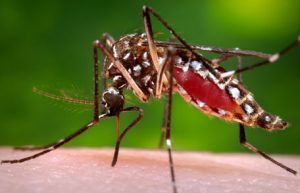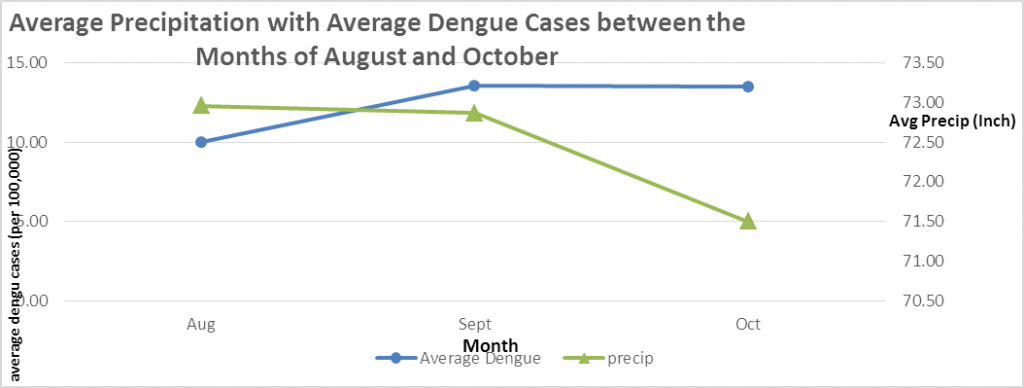Did you know that climate change has a lethal “bite” that may cost thousands of women their health, their lives and their future?
“I spent ages blaming myself, the government and constantly asking myself why this happened to me.” This is how Vanessa Oliveira expressed her feelings of guilt and remorse after being diagnosed with Zika Virus during her pregnancy with baby Maria Clara. You wouldn’t imagine that an itchy red rash on your skin could have the power to make you live in guilt for the rest of your life.
But the question is, is it really Vanessa’s fault? Should she be blaming herself?

Mosquitoes cause more human suffering than any other organism. Over 700 million people get mosquito-borne diseases every year, while over one million people worldwide die from those diseases every year.
Over the last decade, multiple studies have demonstrated the association between climate change, in particular changes in temperature and precipitation, and the spread of mosquito-borne diseases such as Zika virus, dengue fever and malaria.
How does Climate Change Increase the Transmission of Mosquito-Borne Diseases?
As global climate change is predicted to accelerate over the next decades, the frequency, intensity and duration of extreme climatic conditions are more likely to increase, thus affecting the transmission of mosquito-borne diseases. Changes in temperature and precipitation, which are associated with climate change, may create conditions that facilitate the transmission of climate-sensitive diseases.
Changes in Temperature and Mosquito-Borne Diseases
- Hotter temperatures make mosquitoes hungrier: Mosquitoes digest the blood from their hosts faster at high temperatures, which means that they need blood meals more frequently.
- High temperatures reduce the incubation period of the virus: A virus must incubate inside a mosquito before the mosquito becomes infectious, which usually takes 10 days. However, with warmer temperatures, the virus will replicate faster, decreasing the incubation period to 5-7 days. This in turn increases the rate of transmission.
- Mosquito territory expands as the climate warms: Warmer temperatures expand the suitable habitats for mosquitoes’ development. As mosquitoes expand their range, they introduce diseases to new areas, which inevitably leads to increasing the range of transmission.
- Higher temperatures increase the rate of mosquitoes’ development: Warmer temperatures increase the rate of mosquitoes’ development and decrease mortality rates. Also, warmer temperatures reduce the larval size of A. aegypti, which results in smaller adults that need to feed on humans more often in order to develop their egg batch.
Changes in Precipitation and Mosquito-Borne Diseases
As a result of the global climate change, average global temperature has increased by 0.75 C in the last 100 years. Precipitation has also been decreasing, leaving many countries of the world drought stricken.
Studies show that dry climates can lead people to save water in storage containers, which makes favorable artificial breeding sites for mosquitoes and increases the transmission of mosquito borne diseases.
To examine the relationship between dengue fever and climate change in Mexico, I conducted research that tested the effects of precipitation on dengue transmission between 1995 and 2007. The study revealed that average dengue incidence significantly increases in months of high temperatures and low precipitation (Fig.1).
For every 1 inch decrease in precipitation, dengue transmission increases by 0.17%. In addition to the preferable artificial water containers for mosquitoes in dry years, heavy rainfall can flush away the breeding sites for mosquitoes, which can explain this negative relationship in the study.

Fighting Back Against Mosquito-Borne Diseases and Climate Change
Appropriate actions to fight against mosquito-borne diseases through combating climate change pose a hard yet essential challenge. These actions require the efforts of and help from everyone, including biomedical scientists, biologists, epidemiologists, geoscientists and social scientists. A multi-faceted effective approach to mitigate the effects of climate change on the spread of mosquito-borne diseases is widely needed.
To get involved you can start by being energy efficient, switching to renewable sources of power, and contacting your political representatives and the media to tell them you want immediate action on climate change.
It is time to relieve the guilt that Vanessa and thousands of women feel everyday. Collective actions to combat climate change and its horrible consequences on people’s lives, whether they are newly born babies or anxious scared mothers, are immediately needed. We all need to see a mosquito bite as potentially lethal–a bite that is primarily fed on climate change and is slowly destroying many lives.
